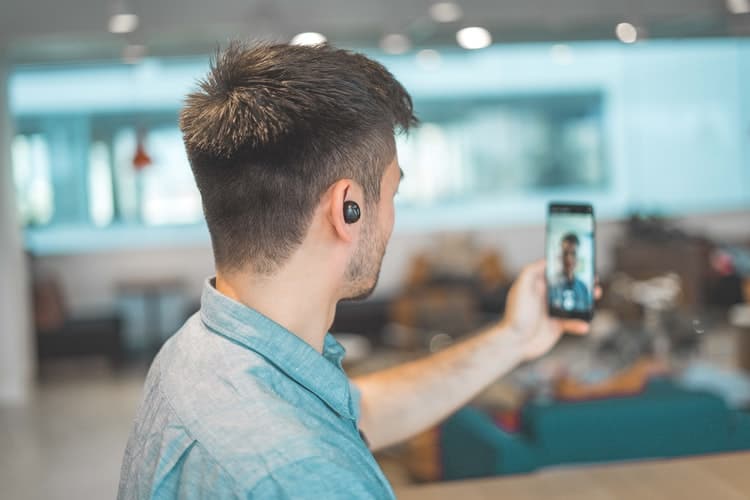How mental health providers are responding
Centerstone, Mental Health Community Centers, and others respond to help prevent the spread of coronavirus in Sarasota-Manatee.
SARASOTA — Canceled group meetings and therapy consultations over the phone. This is how mental health providers are adapting services in light of the novel coronavirus.
“Now is a time where people are so stressed out, they need calm, they need support and we are trying to deliver that no matter what,” said Melissa Larkin-Skinner, Centerstone Florida’s regional chief executive officer.
Centerstone has implemented system-wide strategies that reduce the risk of COVID-19 exposure while preparing to respond effectively as threat levels escalate.
Centerstone Hospital and Addictions Center is fully operational and continuing to serve clients, Larkin-Skinner said.
The walk-in center in Bradenton remains open and has extended its hours. Centerstone’s other programs continue to remain operational, and it is increasing care via video/telephone to reduce risk of exposure.
Centerstone is screening people who come to the hospital campus and clinics and is asking questions about recent health and travel history. This screening includes taking temperatures using an infrared thermometer.
Those screenings are also conducted during client phone intake interviews. Centerstone has stopped participation in offsite meetings and instead offers video or phone options.
Centerstone has also stopped volunteer participation and is checking the temperature of its staff, including cleaning crews, before each shift.
They have also increased cleaning procedures and have posted additional information regarding hand washing and virus symptoms.
To help prevent the spread of coronavirus, visitors are no longer allowed at Sarasota Memorial Hospital, the Bayside Center for Behavioral Health and other facilities.
Coastal Behavioral Health Centers could not be reached for comment. However, they have announced a number of event cancellations.
At Mental Health Community Centers’ three locations, most of its staff is working from home, making phone calls or sending emails to clients. Volunteers are asked to stay home
Support groups and other activities have been suspended this week and most likely will be next week. The Wellness Centers still provide grab-and-go meals and some one-on-one crisis intervention.
“Most people get a lot of stability in our day-to-day activities because it provides a dependable order to their day,” said Arin Norris, executive director of the Mental Health Community Centers. “That’s the piece that we don’t feel like we can safely provide right now.”
The Academy at Glengary has canceled all of its classes and group activities.
Through myriad culinary, hospitality, technology, and other programs, the Academy helps its members build friendships and employment.
Closing its doors is especially hard on a nonprofit whose mission is building a social network for people diagnosed with mental health disorders, said William McKeever, it’s executive director.
“It was a hard decision,” said McKeever. “One of the major challenges with mental health is social isolation.”
One consolation is that members now communicate regularly on the messaging service Slack. Staff is also routinely on the phone to check in on members.
“The main thing is that we’re trying to maintain daily contact to reduce that sense of isolation that they’re going to feel during this time,” McKeever said.
“It’s not the perfect solution, but the message we want to send is that we care about each other and we are in this together to get through this,” he said.
Most services at Forty Carrots closed alongside Sarasota County Schools and will not reopen until April 15. While preschool programming, parenting, and other education classes are canceled, individual therapy will resume over the phone.
“Everyone is shell-shocked at this point,” said Michelle Kapreilian, CEO at Forty Carrots.
Program directors are working on new strategies to get information about the coronavirus out to families, she said.
Colleen Thayer, executive director of the National Alliance on Mental Illness of Sarasota County, said that family support groups last week were canceled in North Port and Venice. The family-to-family class has also been postponed until the fall.
NAMI Sarasota County has begun circulating a coronavirus guide to answer frequently asked questions regarding the intersection between COVID-19 and people with mental illness, including how to find emotional support. You can find that guide at NAMI.org.
People unsure about attending therapy sessions outside the home, especially those whom the CDC has described as being at higher risk, can ask their healthcare provider about teletherapy or mental health services online.
Anyone worried about access to prescribed medications can ask their healthcare provider about getting 90-day supplies vs. a 60- or 30-day supply. If this is not possible, physicians are encouraging you to refill your medications as soon as they are allowed.
The CDC also has a webpage with information on dealing with fear, anxiety and stress brought on by the coronavirus pandemic.
The National Institute of Mental Illnesses recommends developing a plan for telehealth sessions with your provider if you (or your provider) are quarantined. It also recommends reaching out virtually to friends and family for support.
